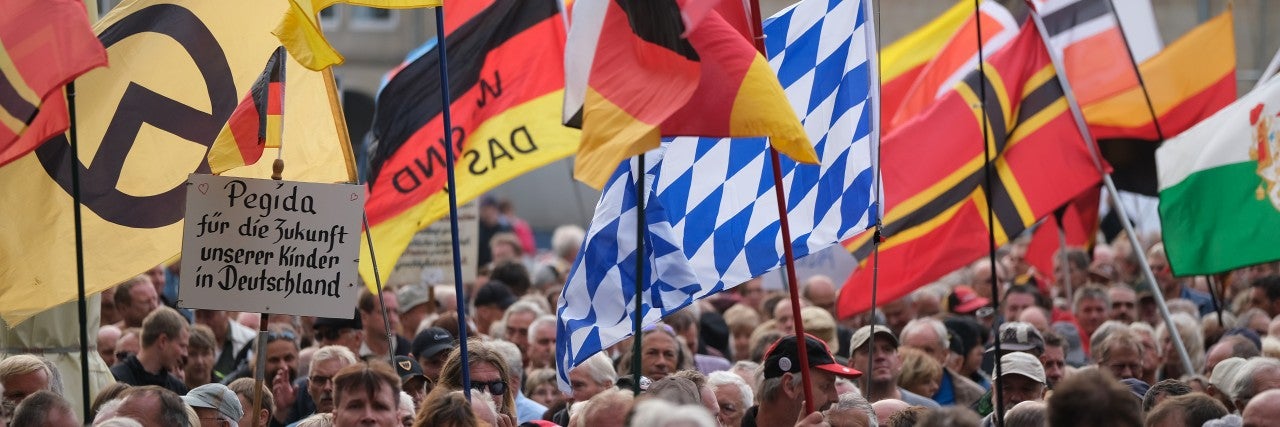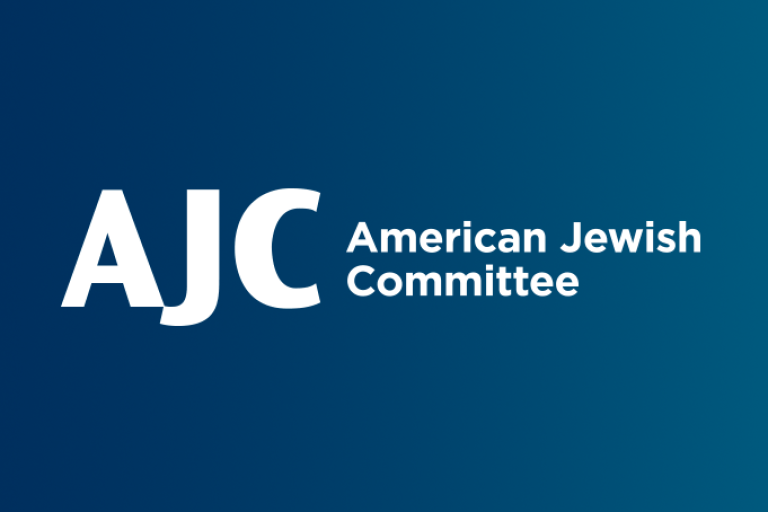November 8, 2019
The eastern German city of Dresden has declared a “Nazi emergency“ to call attention to the rise of far-right wing extremists in local elections and virulent hatred toward Muslims and migrants amid the refugee crisis.
Dresden, the capital of Saxony, has become a hotbed for far-right politics and the epicenter of the anti-Muslim Pegida movement, which stages regular rallies protesting the supposed prospect of Islamic rule. Meanwhile, Saxony has become a stronghold of the far-right Alternative for Germany (AfD) party, which came in second in elections there.
While the AfD and Pegida aren’t the same as neo-Nazis, they do form a breeding ground for antisemitism, said Remko Leemhuis, acting director of AJC Berlin. The “Nazi emergency” is “just a symbolic step,” he said. “Maybe it’s good that people can talk more openly about it or address the problem more openly."
The “problem” is a rise of Jew-hatred across Germany. While German has taken concrete actions to curb antisemitism on its soil, especially since the deadly attack outside a Halle synagogue on Yom Kippur, it could still do more, he said.
Leemhuis said Germany’s government has responded to the attack in Halle on the holiest day on the Jewish calendar with both remorse and force. Last month, German Families Minister Franziska Giffey pledged an additional $115 million euros ($127.8 million) annually through 2023 to nonprofit groups that promote democracy and fight far-right extremism and antisemitism. And efforts are underway to direct more federal funds to state agencies to shore up security at synagogues and Jewish community centers.
Chancellor Angela Merkel has called for more intense background checks for prospective gun buyers to ensure they have no ties to extremism in their present or past. A recent review of German permit holders revealed that nearly 800 far-right extremists held firearms licenses. The proposed legislation would “strip extremists of their guns or their weapons if they commit certain hate crimes,” Leemhuis said. “It’s always good to take guns out of the hands of these people.”
Still, that would not have stopped the attacker in Halle, who produced his own weapons on a 3D printer. What might have stopped him from setting out on his murderous mission would have been some form of intervention that would have prevented him from being radicalized online.
With that in mind, Merkel also has proposed holding social media companies more accountable for their platforms. In addition to removing online hate speech, companies also would be required report problematic content and its source to federal authorities. A new department would keep track of the content and the I.P. addresses of those who post it and those who commit the crimes would face stiffer penalties.
Banning Hezbollah also would go a long way in communicating there is no tolerance for antisemitic rhetoric, no matter what form. Dresden, after all, is hardly the only place in Germany in which ugly rallies and demonstrations take place. The annual al-Quds Day rally in Berlin bears an uncanny resemblance to the Dresden affair.
The only difference is that, instead protesting immigration policies, at the al Quds Day event protesters fly Hezbollah flags and chant “Death to Israel.”


